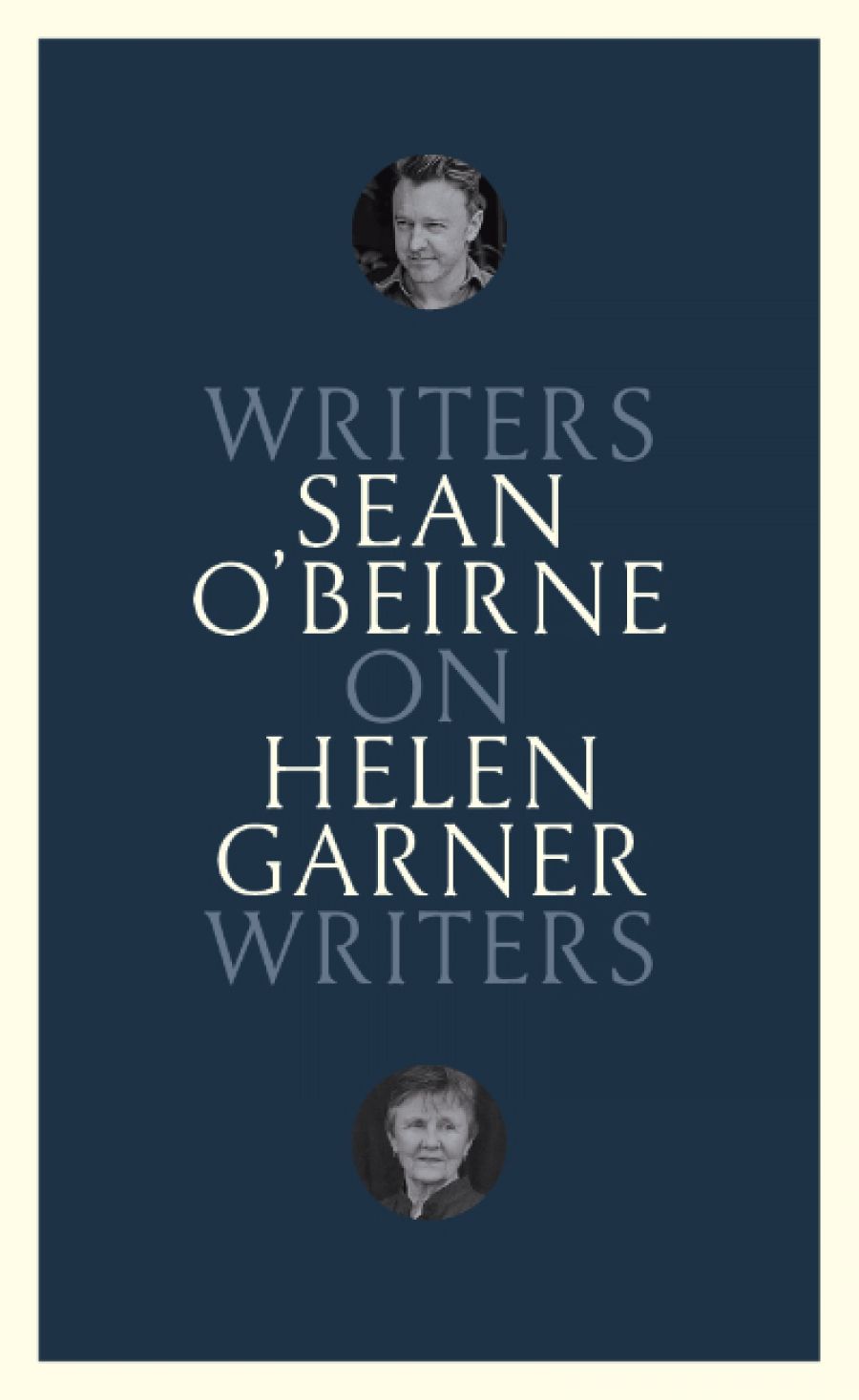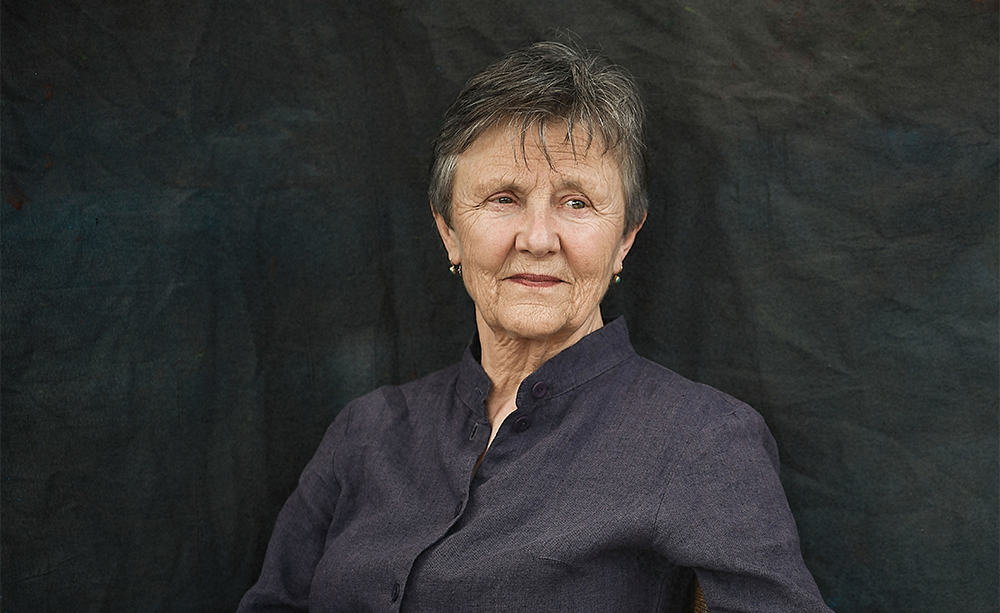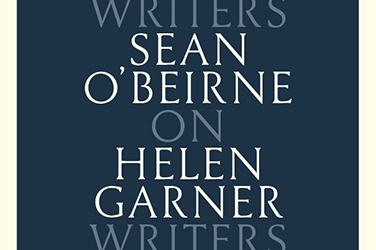
- Free Article: No
- Contents Category: Literary Studies
- Review Article: Yes
- Article Title: Lost in the bowels
- Article Subtitle: Recasting Helen Garner as an MFA craft seminar
- Online Only: No
- Custom Highlight Text:
Oh, how I detest tiny books – those cutesy little hardbacks that are sold next to the novelty bookmarks and greeting cards. 101 Reasons Why Dogs/Cats Are Better Than Cats/Dogs; Inspo quotes for Insta feminists; The Pocket Marcus Aurelias (for the stoic on-the-go); The Pocket Tarot (for the soothsayer on-the-go); The Tao of Something. They are the literary equivalent of supermarket checkout chocolates – sugar-fix books. Stocking stuffers. Gag gifts. Op-shop cloggers. Toilet-floor lint collectors.
- Article Hero Image (920px wide):

- Article Hero Image Caption: Helen Garner (photograph by Darren James/Text Publishing)
- Alt Tag (Article Hero Image): Helen Garner (photograph by Darren James/Text Publishing)
- Featured Image (400px * 250px):

- Alt Tag (Featured Image): Beejay Silcox reviews 'On Helen Garner: Writers on writers' by Sean O’Beirne
- Book 1 Title: On Helen Garner
- Book 1 Subtitle: Writers on writers
- Book 1 Biblio: Black Inc., $17.99 hb, 138 pp
- Book 1 Readings Link: booktopia.kh4ffx.net/NKJKv7
And so it is hard not be cynical about Black Inc’s Writers on Writers series, in which Australian authors extol their home-grown literary heroes. The series is produced in dinky, impulse-buying form; a paragraph to a page. We’re meant to collect the whole set, like literary Pokémon; ten so far, and another waiting in the wings. It’s shrewd profiteering: why sell one volume when you can sell a rainbow-hued shelfful? But as the latest instalment finds its way to bookshop countertops – Sean O’Beirne on Helen Garner – I yearn for the adult-sized anthology that could have been: a rowdy love-letter to Aus-lit, rather than a series of parallel venerations. I yearn for the alchemy of conversation.
The lure of Writers on Writers is refractive: tracing the influence of one lauded Aussie writer through the work of another. As a self-confessed ‘junior author’, Sean O’Beirne can’t rely on reader familiarity (in 2020, the Melbourne author published his first book, a satirical short story collection, A Couple of Things Before the End, which Helen Garner endorsed). He’s left with an unenviable task: not only must he pin the ever-formidable Garner to the page, but also make the case for himself as her rhapsodist. Garner is a plum assignment, and there’s more than a little writerly envy splashing about. But there is also a protective – almost proprietary – expectation: the sense that Garner deserves a well-armed opponent, not an acolyte; a mind to play against. Someone who might dare to disagree with her.
O’Beirne is not that someone, nor does he pretend to be. ‘I feel like a student who has the sum demonstrated, but will never understand how to do it,’ he writes of Garner’s literary presence, her ‘radical honesty’. That candour has shapeshifted across Garner’s career, and O’Beirne sets out to trace it: from the guilelessness of Monkey Grip (1977) to the impotent anguish of Joe Cinque’s Consolation (2004); from the blundering outrage of The First Stone (1992), to the solemn ambivalence of This House of Grief (2014). (Inexplicably, Garner’s most generous and self-anchored project, her three-volume Diaries, barely warrants a mention.)
It is a hermetic analysis: bereft of biography, history, or socio-cultural context. (‘I’m very conscious,’ writes O’Beirne, ‘that a lot of what is interesting about Garner has been left out.’) As he watches Garner’s literary self evolve – her watchful eye and interrogative ‘I’ – O’Beirne feels pressure to cultivate his own. ‘I’ve never risked as much of my more direct self as Garner,’ he admits, ‘never worked so open, so exposed’. And so O’Beirne offers a kind of real-time experiment: what might his writing be like if he relinquished his disguises?
I have done my time in writing workshops, and it is easy – too easy, sadly – to imagine O’Beirne’s essay as a response to a classroom prompt: How might you apply Garner’s ‘radical honesty’ to your own literary practice?. O’Beirne poses that question himself as an invitation to readers: ‘With any luck, as I try this (being more open), you’ll get the chance to think about what you need, what methods you’ve used to save or protect yourself,’ he writes. ‘How much do you think should be told, just as you, and how much shouldn’t be.’ Here is Garner recast as an MFA craft seminar.
Yet, for all his revelatory intent, O’Beirne keeps himself well and truly clenched. The little that he relinquishes feels gauzily generic: a 1980s childhood in the ‘concreted and tan-barked’ outer suburbs of Melbourne, with a ‘pretty heavy load of bloke over me’; a family who were ‘different from me and who more or less demanded I be like them’; Garner’s work offering a wild kind of solace – permission to ‘keep as much individual self as you can’. It’s a thin version of the story most every bookish Aussie kid has to tell. O’Beirne knows he’s withholding – ‘I haven’t given you one specific incident, telling as me, about my family, my dad, my mum’ – but decides, ultimately, that Garner’s gut-spilling gambit is not for him. His limp moral: all literary personas are fraught.
One quiet anecdote that does slip through is O’Beirne’s schoolyard penchant for impersonation – a tendency that won him no admirers. A strange, grating kind of impersonation emerges in these pages, too, as O’Beirne often speaks as – and for – Garner, as if he were animating the voice inside her head; presenting his analysis as her thoughts. Garner is the last author alive to need a spokesperson, and it’s a grotesque irony to ventriloquise a woman just as you laud her for saying exactly what she means.
O’Beirne, meanwhile, gets lost in the bowels of his sentences. Consider his essay’s snarled opening salvo:
What I love, what I need, first in Helen Garner’s writing is a particular kind of closeness to self – the good, greedy, mistaken, fierce, sceptical, changing and disrupting self. There is, always, Garner’s sheer skill at observation, with sentences, with words in combination: but a writer can have that and you still don’t attach, in some way: once a certain level of skill has been cleared, the real affinity is to the emotional-news, the thing about life, about people, the writer tells you it’s alright to think.
It feels cruel to lay it all out – the ceaseless emphasis, the punctuation shrapnel, the evasive sauntering chatter – cruel to subject this earnest craft experiment to the full force of critical scrutiny. That’s the price the authors in Writers on Writers pay when they are published as standalone volumes, and at that strange giftbook nether-length. Most of the contributions to Writers on Writers have been ungainly, unsatisfying creatures – not quite memoirs and not quite primers. They are too knowing for new readers, and too cursory for fans; pitched to everyone and satisfying to none. O’Beirne’s Garner essay may be the weakest of this nebulous series, but it’s hard not to feel as if he’s been set up to fail.


Comments powered by CComment